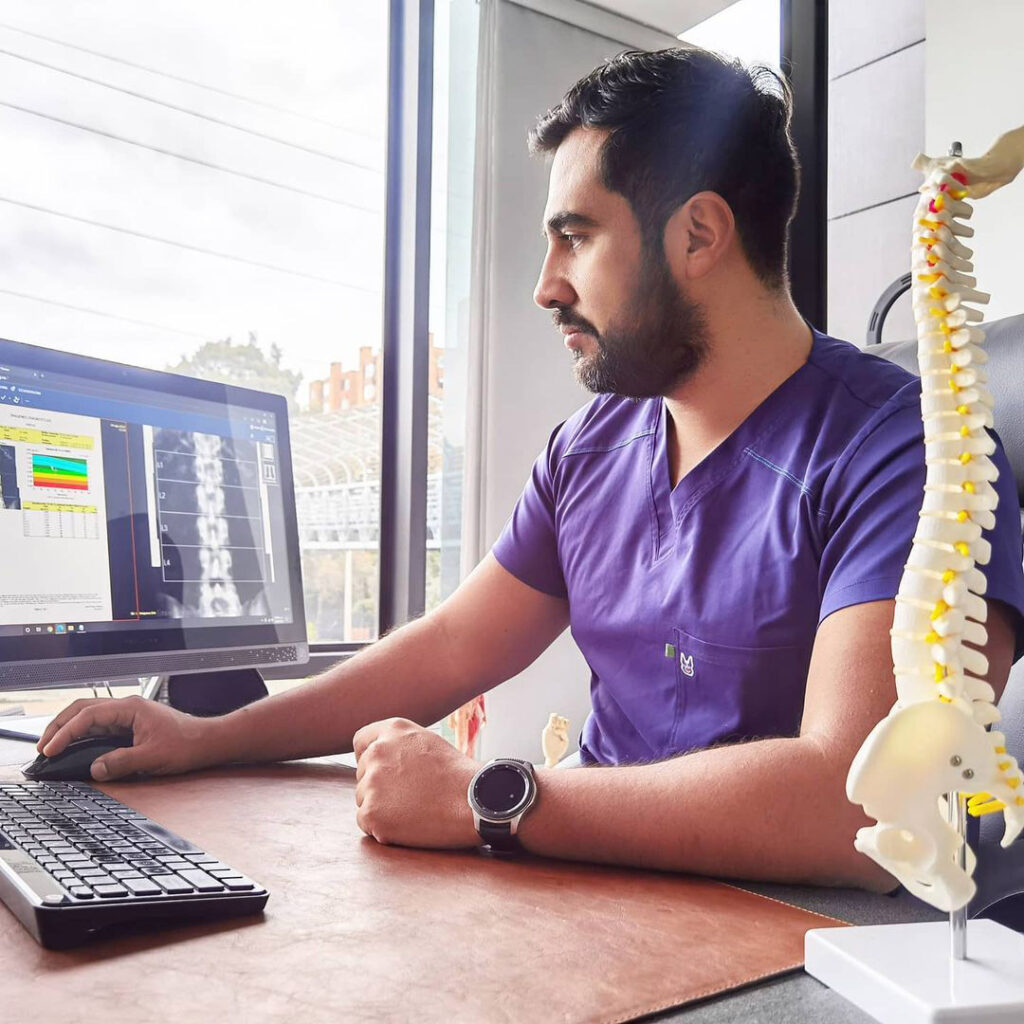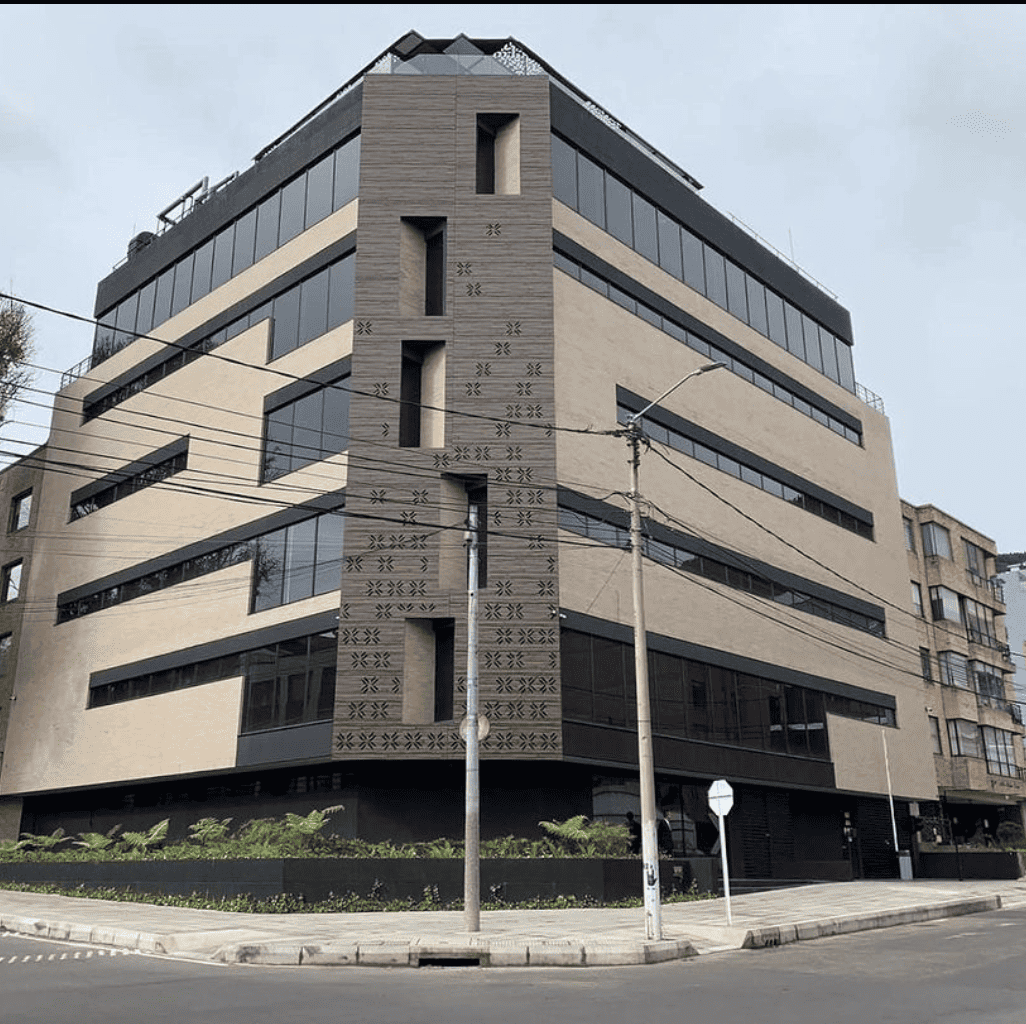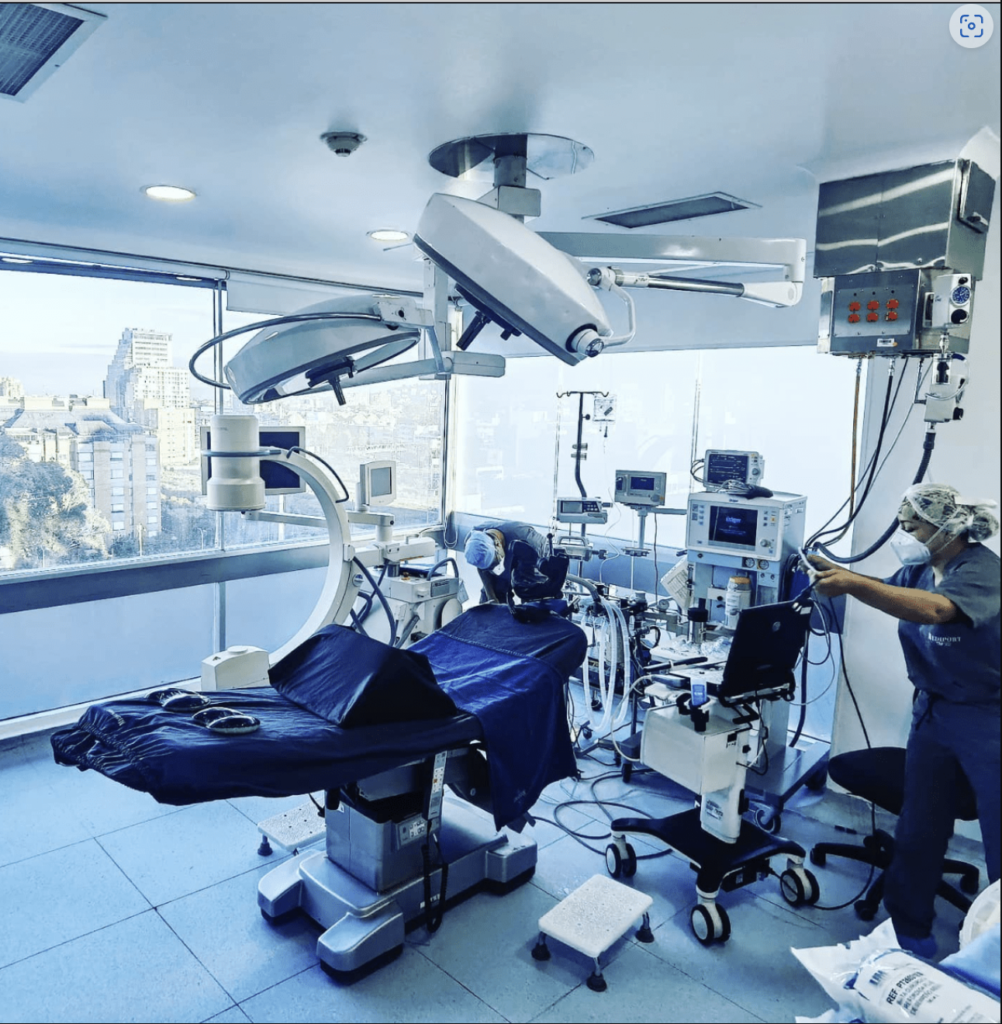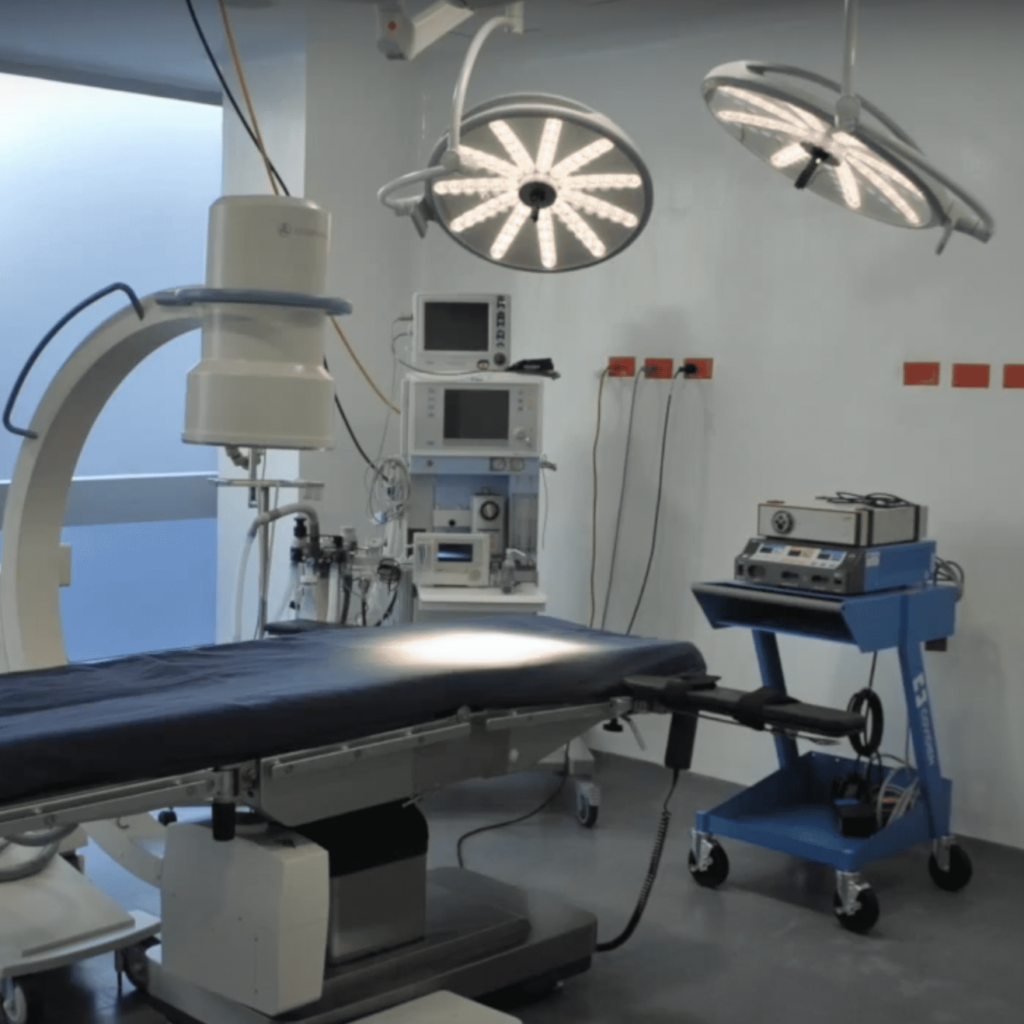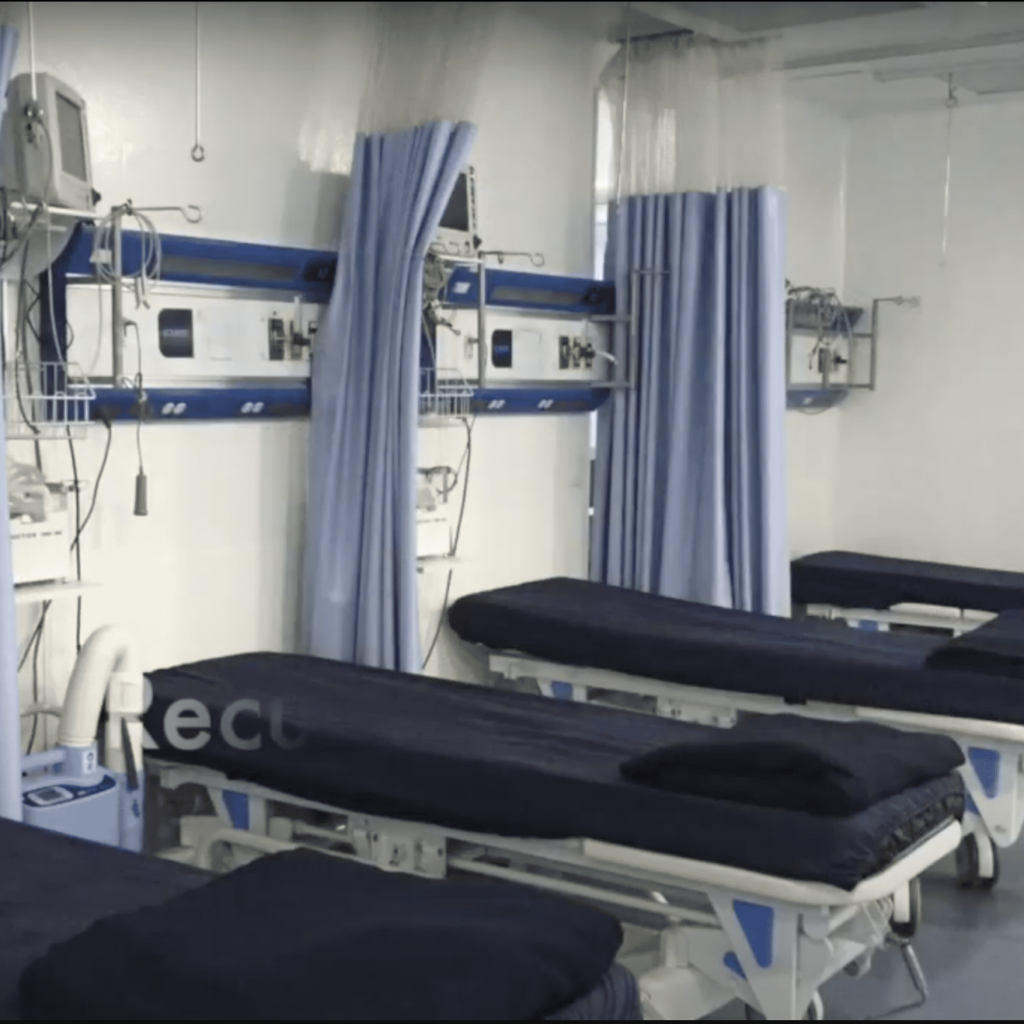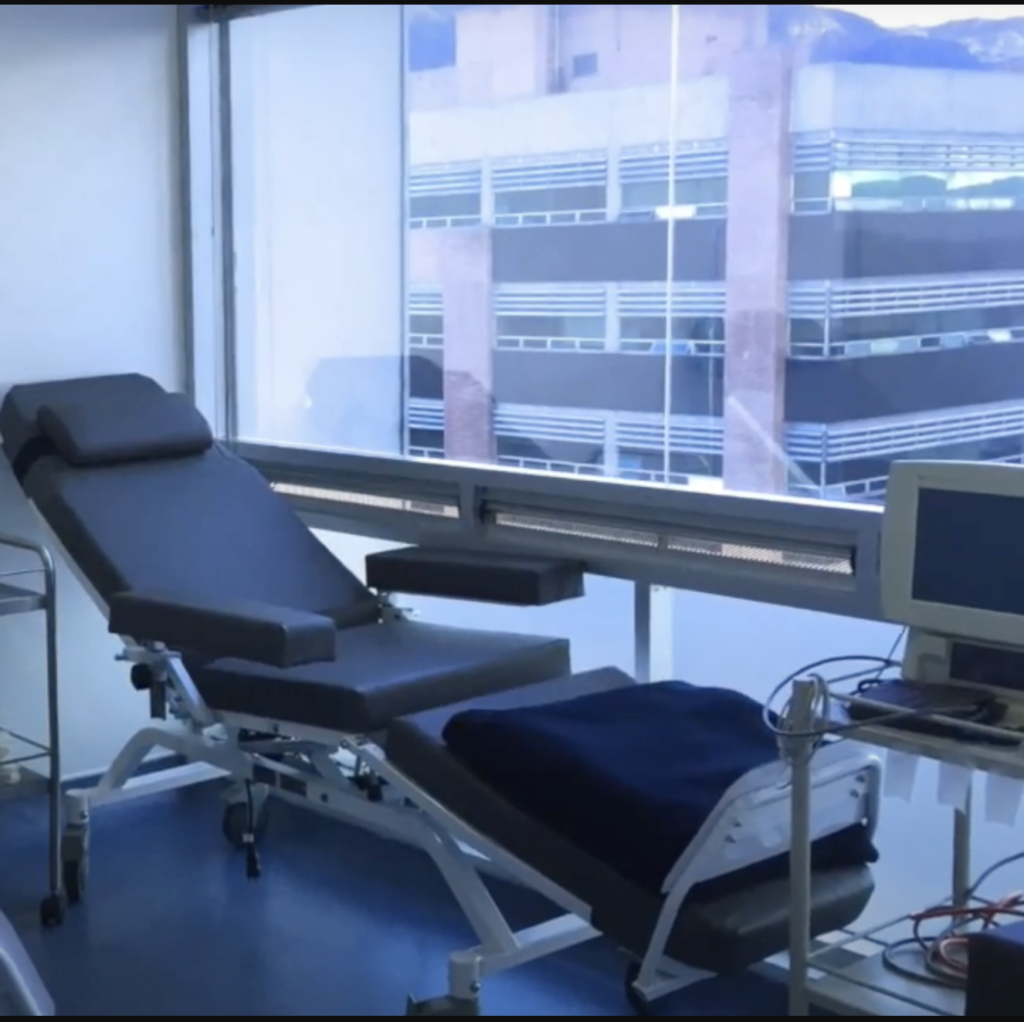
DR. MIGUEL FARFÁN ORTHOPEDIC SURGEON
SPINAL FUSION SURGERY COST IN BOGOTA COLOMBIA
Unveiling the Hidden Costs: Demystifying the Price of Spinal fusion surgery
“One of the main reasons why patients choose to have their Spinal Fusion Surgery in Bogota, Colombia is the significant cost savings compared to other countries.”

SPINAL FUSION SURGERY COST IN BOGOTA COLOMBIA
DR. MIGUEL FARFÁN
Orthopedist U. del Rosario Bogotá
Medical Doctor U. Nacional de Colombia.
Spine SUrgery Fellowship U. Nacional Autónoma de México
Memberships:

★★★★★ 5/5 Average rating by Google
ORTHOPEDIC SURGEON IN BOGOTA COLOMBIA
DR. MIGUEL FARFÁN
Dr. Miguel Farfan is an Orthopedic Surgeon who graduated from the National University of Colombia and the University of Rosario with the Santa Fe Foundation of Bogota. He also has a degree in spine surgery from the National Autonomous University of Mexico in Mexico City. He currently works as a specialist in orthopedic surgery in Bogota Colombia and Mexico City. The main pathologies treated by Dr. Farfán are hip, knee and spinal disorders.
MEMBERSHIPS
SPINAL FUSION SURGERY COST IN BOGOTA COLOMBIA.
Unveiling the Hidden Costs: Demystifying the Price of Spinal fusion surgery
Are you considering spinal fusion surgery but worried about the price? Unveiling the Hidden Costs: Demystifying the Price of Spinal fusion surgery is here to shed light on the financial aspects of this common procedure. In today's medical landscape, it's all too easy for patients to be blindsided by unexpected expenses. This article aims to equip you with the knowledge needed to make informed decisions about your healthcare and understand the full financial implications.
Navigating the complex world of medical billing can be overwhelming, but understanding the hidden costs of spinal fusion surgery is essential for budgeting and planning. From pre-surgery tests and consultations to hospital fees, anesthesia costs, and post-operative care, there are numerous elements that contribute to the final bill.
Our comprehensive guide unravels the mystique around spinal fusion surgery costs, offering practical advice and insights for patients. We explore insurance coverage and out-of-pocket expenses, revealing potential avenues for cost savings. Additionally, we provide tips on effectively communicating with healthcare providers about financial concerns and negotiating payment plans.
Don't let the price of spinal fusion surgery catch you off guard. Join us as we navigate the tangled web of expenses and uncover the hidden costs, ensuring you make the most informed decisions about your health and your wallet.
Navigating the complex world of medical billing can be overwhelming, but understanding the hidden costs of spinal fusion surgery is essential for budgeting and planning. From pre-surgery tests and consultations to hospital fees, anesthesia costs, and post-operative care, there are numerous elements that contribute to the final bill.
Our comprehensive guide unravels the mystique around spinal fusion surgery costs, offering practical advice and insights for patients. We explore insurance coverage and out-of-pocket expenses, revealing potential avenues for cost savings. Additionally, we provide tips on effectively communicating with healthcare providers about financial concerns and negotiating payment plans.
Don't let the price of spinal fusion surgery catch you off guard. Join us as we navigate the tangled web of expenses and uncover the hidden costs, ensuring you make the most informed decisions about your health and your wallet.
Common reasons for Spinal Fusion Sugery
Spinal fusion surgery is a medical procedure that aims to address various conditions affecting the spine. The decision to undergo spinal fusion surgery is often made when non-surgical treatments have failed to provide relief or when the condition is severe enough to require surgical intervention. Understanding the common reasons for spinal fusion surgery can help you determine if it is the right option for you.
One common reason for spinal fusion surgery is herniated discs. When the discs in the spine become damaged or bulge out of place, they can put pressure on the surrounding nerves, resulting in pain, numbness, or weakness. Surgery may be recommended to remove the herniated portion of the disc and alleviate the pressure on the nerves.
Another reason for spinal fusion surgery is spinal stenosis. This condition occurs when the spinal canal narrows, putting pressure on the spinal cord and nerves. Symptoms of spinal stenosis may include pain, numbness, or difficulty walking. Surgery can help create more space in the spinal canal and relieve the pressure on the affected nerves.
Scoliosis, a condition characterized by an abnormal curvature of the spine, is another common reason for spinal fusion surgery. In severe cases, surgery may be necessary to straighten the spine and prevent further progression of the curvature. This can help improve posture, reduce pain, and enhance overall mobility.
While these are just a few examples, there are various other conditions that may require spinal fusion surgery. It is important to consult with a medical professional to determine the underlying cause of your back pain and whether surgery is the most appropriate course of action. Remember, each case is unique, and the decision to undergo surgery should be made in consultation with your healthcare provider.
One common reason for spinal fusion surgery is herniated discs. When the discs in the spine become damaged or bulge out of place, they can put pressure on the surrounding nerves, resulting in pain, numbness, or weakness. Surgery may be recommended to remove the herniated portion of the disc and alleviate the pressure on the nerves.
Another reason for spinal fusion surgery is spinal stenosis. This condition occurs when the spinal canal narrows, putting pressure on the spinal cord and nerves. Symptoms of spinal stenosis may include pain, numbness, or difficulty walking. Surgery can help create more space in the spinal canal and relieve the pressure on the affected nerves.
Scoliosis, a condition characterized by an abnormal curvature of the spine, is another common reason for spinal fusion surgery. In severe cases, surgery may be necessary to straighten the spine and prevent further progression of the curvature. This can help improve posture, reduce pain, and enhance overall mobility.
While these are just a few examples, there are various other conditions that may require spinal fusion surgery. It is important to consult with a medical professional to determine the underlying cause of your back pain and whether surgery is the most appropriate course of action. Remember, each case is unique, and the decision to undergo surgery should be made in consultation with your healthcare provider.
Different types of back surgeries
Spinal fusion surgery is not a one-size-fits-all approach. There are different types of back surgeries, each designed to address specific conditions and provide targeted relief. Understanding the different types of back surgeries can help you have a more informed discussion with your healthcare provider and make the right decision for your needs.
One common type of spinal fusion surgery is a discectomy. This procedure involves the removal of a portion of a herniated disc that is causing nerve compression. By removing the damaged or bulging disc material, pressure on the nerves can be relieved, resulting in reduced pain and improved function.
Another type of spinal fusion surgery is a laminectomy. This procedure is often performed to treat spinal stenosis or other conditions that cause pressure on the spinal cord and nerves. During a laminectomy, a portion of the vertebral bone, called the lamina, is removed to create more space in the spinal canal and alleviate the pressure on the affected nerves. Fusion surgery is another common type of spinal fusion surgery. This procedure involves joining two or more vertebrae together to stabilize the spine and reduce pain. Fusion surgery may be recommended for conditions such as degenerative disc disease or spondylolisthesis, where the vertebrae have become unstable and are causing pain or nerve compression.
In some cases, minimally invasive techniques may be used for spinal fusion surgery. These procedures involve smaller incisions and specialized instruments, resulting in less tissue damage, reduced scarring, and faster recovery times. Minimally invasive back surgeries can include discectomies, laminectomies, and fusions, among others.
It is important to note that not all back conditions will require surgery. Non-surgical treatments, such as physical therapy, medication, and lifestyle modifications, are often the first line of defense. Surgery is typically considered when these conservative treatments have failed to provide adequate relief or when the condition is severe enough to require surgical intervention. Always consult with your healthcare provider to determine the most appropriate treatment plan for your specific condition.
Another type of spinal fusion surgery is a laminectomy. This procedure is often performed to treat spinal stenosis or other conditions that cause pressure on the spinal cord and nerves. During a laminectomy, a portion of the vertebral bone, called the lamina, is removed to create more space in the spinal canal and alleviate the pressure on the affected nerves. Fusion surgery is another common type of spinal fusion surgery. This procedure involves joining two or more vertebrae together to stabilize the spine and reduce pain. Fusion surgery may be recommended for conditions such as degenerative disc disease or spondylolisthesis, where the vertebrae have become unstable and are causing pain or nerve compression.
In some cases, minimally invasive techniques may be used for spinal fusion surgery. These procedures involve smaller incisions and specialized instruments, resulting in less tissue damage, reduced scarring, and faster recovery times. Minimally invasive back surgeries can include discectomies, laminectomies, and fusions, among others.
It is important to note that not all back conditions will require surgery. Non-surgical treatments, such as physical therapy, medication, and lifestyle modifications, are often the first line of defense. Surgery is typically considered when these conservative treatments have failed to provide adequate relief or when the condition is severe enough to require surgical intervention. Always consult with your healthcare provider to determine the most appropriate treatment plan for your specific condition.
Understanding the cost factors of spinal fusion surgery
Spinal fusion surgery can come with a significant price tag, and understanding the cost factors involved is crucial for planning and budgeting. While the exact cost of spinal fusion surgery can vary depending on factors such as the type of procedure, the complexity of the condition, and the location of the healthcare facility, there are common elements that contribute to the overall cost.
One of the primary cost factors of spinal fusion surgery is the pre-surgery evaluation and diagnostic tests. Before undergoing surgery, you will likely need to undergo various tests, such as X-rays, MRIs, or CT scans, to assess the condition of your spine and determine the most appropriate surgical approach. These tests can add to the overall cost of the procedure.
The surgeon's fee is another significant cost factor. The experience, expertise, and reputation of the surgeon can influence the fee charged for the procedure. Surgeons who specialize in complex spinal surgeries may charge higher fees compared to those who perform more routine procedures. It is essential to discuss the surgeon's fee with your healthcare provider and understand what it includes, as it may or may not cover all aspects of the surgery. Hospital fees are also a significant component of the overall cost of spinal fusion surgery. These fees can include the use of operating rooms, nursing care, and other hospital services. The length of your hospital stay can impact the total cost, as longer stays generally result in higher fees.
Anesthesia costs should also be considered when budgeting for spinal fusion surgery. Anesthesia is administered to ensure the patient is comfortable and pain-free during the procedure. The cost of anesthesia can vary depending on factors such as the type of anesthesia used and the duration of the surgery.
Post-operative care and rehabilitation are additional cost factors to consider. Depending on the type of spinal fusion surgery, you may require physical therapy, medication, or other forms of rehabilitation to aid in your recovery. These additional services can contribute to the overall cost of the procedure.
It is important to note that these cost factors can add up quickly, and it is essential to discuss the potential expenses with your healthcare provider and insurance company. Understanding the financial implications of spinal fusion surgery can help you plan accordingly and avoid any unexpected surprises.
One of the primary cost factors of spinal fusion surgery is the pre-surgery evaluation and diagnostic tests. Before undergoing surgery, you will likely need to undergo various tests, such as X-rays, MRIs, or CT scans, to assess the condition of your spine and determine the most appropriate surgical approach. These tests can add to the overall cost of the procedure.
The surgeon's fee is another significant cost factor. The experience, expertise, and reputation of the surgeon can influence the fee charged for the procedure. Surgeons who specialize in complex spinal surgeries may charge higher fees compared to those who perform more routine procedures. It is essential to discuss the surgeon's fee with your healthcare provider and understand what it includes, as it may or may not cover all aspects of the surgery. Hospital fees are also a significant component of the overall cost of spinal fusion surgery. These fees can include the use of operating rooms, nursing care, and other hospital services. The length of your hospital stay can impact the total cost, as longer stays generally result in higher fees.
Anesthesia costs should also be considered when budgeting for spinal fusion surgery. Anesthesia is administered to ensure the patient is comfortable and pain-free during the procedure. The cost of anesthesia can vary depending on factors such as the type of anesthesia used and the duration of the surgery.
Post-operative care and rehabilitation are additional cost factors to consider. Depending on the type of spinal fusion surgery, you may require physical therapy, medication, or other forms of rehabilitation to aid in your recovery. These additional services can contribute to the overall cost of the procedure.
It is important to note that these cost factors can add up quickly, and it is essential to discuss the potential expenses with your healthcare provider and insurance company. Understanding the financial implications of spinal fusion surgery can help you plan accordingly and avoid any unexpected surprises.
Preparing for the financial aspect of spinal fusion surgery
The financial aspect of spinal fusion surgery should not be overlooked. Planning and preparing for the expenses associated with the procedure can help alleviate stress and ensure a smoother financial experience. Here are some steps you can take to prepare for the financial aspect of spinal fusion surgery:
1. Review your insurance coverage: Start by reviewing your health insurance policy to understand what it covers in terms of spinal fusion surgery. Different insurance plans may have varying levels of coverage, and it is important to know what expenses you may be responsible for. Contact your insurance provider directly for specific details about your coverage.
2. Check for pre-authorization requirements: Some insurance plans require pre-authorization for certain procedures, including spinal fusion surgery. Make sure to check with your insurance provider to determine if pre-authorization is necessary and what steps you need to take to obtain it. Failure to obtain pre-authorization could result in your insurance denying coverage for the procedure.
3. Understand your deductible and out-of-pocket expenses: Familiarize yourself with your insurance plan's deductible and out-of-pocket expenses. The deductible is the amount you must pay out of pocket before your insurance coverage kicks in. Out-of-pocket expenses refer to the portion of the medical costs that you are responsible for paying, even after your deductible has been met.
4. Set up a payment plan: If you anticipate having difficulty paying for the surgery upfront, discuss the possibility of setting up a payment plan with your healthcare provider. Many hospitals and healthcare facilities offer flexible payment options to help patients manage the financial burden. Be proactive in discussing your financial concerns and exploring payment plan options.
5. Research financial assistance programs: Some hospitals and nonprofit organizations offer financial assistance programs to help individuals cover the cost of medical procedures. These programs may be income-based or provide assistance to individuals who meet specific criteria. Research and inquire about any available financial assistance programs that could help reduce your out-of-pocket expenses.
6. Save for unexpected expenses: While you may have a general idea of the cost of spinal fusion surgery, it is essential to save for any unexpected expenses that may arise. This could include additional tests, medications, or complications that may occur during or after the surgery. Having a financial cushion can provide peace of mind and help you navigate any unforeseen circumstances.
By taking these steps to prepare for the financial aspect of spinal fusion surgery, you can ensure that you are well-equipped to handle the expenses associated with the procedure. It is always recommended to consult with your healthcare provider and insurance company for specific guidance and information related to your individual case.
1. Review your insurance coverage: Start by reviewing your health insurance policy to understand what it covers in terms of spinal fusion surgery. Different insurance plans may have varying levels of coverage, and it is important to know what expenses you may be responsible for. Contact your insurance provider directly for specific details about your coverage.
2. Check for pre-authorization requirements: Some insurance plans require pre-authorization for certain procedures, including spinal fusion surgery. Make sure to check with your insurance provider to determine if pre-authorization is necessary and what steps you need to take to obtain it. Failure to obtain pre-authorization could result in your insurance denying coverage for the procedure.
3. Understand your deductible and out-of-pocket expenses: Familiarize yourself with your insurance plan's deductible and out-of-pocket expenses. The deductible is the amount you must pay out of pocket before your insurance coverage kicks in. Out-of-pocket expenses refer to the portion of the medical costs that you are responsible for paying, even after your deductible has been met.
4. Set up a payment plan: If you anticipate having difficulty paying for the surgery upfront, discuss the possibility of setting up a payment plan with your healthcare provider. Many hospitals and healthcare facilities offer flexible payment options to help patients manage the financial burden. Be proactive in discussing your financial concerns and exploring payment plan options.
5. Research financial assistance programs: Some hospitals and nonprofit organizations offer financial assistance programs to help individuals cover the cost of medical procedures. These programs may be income-based or provide assistance to individuals who meet specific criteria. Research and inquire about any available financial assistance programs that could help reduce your out-of-pocket expenses.
6. Save for unexpected expenses: While you may have a general idea of the cost of spinal fusion surgery, it is essential to save for any unexpected expenses that may arise. This could include additional tests, medications, or complications that may occur during or after the surgery. Having a financial cushion can provide peace of mind and help you navigate any unforeseen circumstances.
By taking these steps to prepare for the financial aspect of spinal fusion surgery, you can ensure that you are well-equipped to handle the expenses associated with the procedure. It is always recommended to consult with your healthcare provider and insurance company for specific guidance and information related to your individual case.
Hidden costs of spinal fusion surgery
While the cost factors mentioned earlier provide a general overview of the expenses associated with spinal fusion surgery, there are additional hidden costs that patients may not be aware of. These hidden costs can add up and significantly impact the overall financial burden. It is crucial to be aware of these potential expenses and plan accordingly. Here are some hidden costs to consider:
1. Medications: After spinal fusion surgery, you may be prescribed pain medications, muscle relaxants, or other medications to aid in your recovery. The cost of these medications may not be fully covered by your insurance, resulting in out-of-pocket expenses. Additionally, some medications may need to be taken for an extended period, further increasing the overall cost.
2. Physical therapy: Depending on the type of spinal fusion surgery, physical therapy may be recommended to aid in your recovery and help regain strength and mobility. The cost of physical therapy sessions can vary, and it is important to factor this into your budget. If your insurance coverage is limited or does not include physical therapy, you may need to pay for these sessions out of pocket.
3. Home modifications: Following spinal fusion surgery, you may require certain modifications to your home to facilitate your recovery. This could include purchasing equipment such as grab bars, raised toilet seats, or shower chairs. These expenses may not be covered by insurance and can add up quickly.
4. Transportation and lodging: If you need to travel to undergo spinal fusion surgery or receive specialized care, transportation and lodging expenses can add to the overall cost. This is particularly relevant for individuals who live in remote areas or need to travel long distances to access the necessary medical facilities.
5. Time off work: Spinal fusion surgery often requires a significant recovery period, during which you may need to take time off work. The loss of income during this time should be factored into your financial planning. Additionally, if you have a physically demanding job, you may require an extended period of disability, further impacting your income.
6. Complications and additional procedures: While rare, complications can occur during or after spinal fusion surgery, requiring additional procedures or interventions. These unexpected events can result in additional medical expenses and prolong the recovery period. It is important to be prepared for such possibilities and consider the potential financial implications.
By understanding and accounting for these hidden costs, you can better plan for the financial aspect of spinal fusion surgery. It is also recommended to discuss these potential expenses with your healthcare provider and insurance company to gain a clearer understanding of what may be covered and what you may be responsible for.
1. Medications: After spinal fusion surgery, you may be prescribed pain medications, muscle relaxants, or other medications to aid in your recovery. The cost of these medications may not be fully covered by your insurance, resulting in out-of-pocket expenses. Additionally, some medications may need to be taken for an extended period, further increasing the overall cost.
2. Physical therapy: Depending on the type of spinal fusion surgery, physical therapy may be recommended to aid in your recovery and help regain strength and mobility. The cost of physical therapy sessions can vary, and it is important to factor this into your budget. If your insurance coverage is limited or does not include physical therapy, you may need to pay for these sessions out of pocket.
3. Home modifications: Following spinal fusion surgery, you may require certain modifications to your home to facilitate your recovery. This could include purchasing equipment such as grab bars, raised toilet seats, or shower chairs. These expenses may not be covered by insurance and can add up quickly.
4. Transportation and lodging: If you need to travel to undergo spinal fusion surgery or receive specialized care, transportation and lodging expenses can add to the overall cost. This is particularly relevant for individuals who live in remote areas or need to travel long distances to access the necessary medical facilities.
5. Time off work: Spinal fusion surgery often requires a significant recovery period, during which you may need to take time off work. The loss of income during this time should be factored into your financial planning. Additionally, if you have a physically demanding job, you may require an extended period of disability, further impacting your income.
6. Complications and additional procedures: While rare, complications can occur during or after spinal fusion surgery, requiring additional procedures or interventions. These unexpected events can result in additional medical expenses and prolong the recovery period. It is important to be prepared for such possibilities and consider the potential financial implications.
By understanding and accounting for these hidden costs, you can better plan for the financial aspect of spinal fusion surgery. It is also recommended to discuss these potential expenses with your healthcare provider and insurance company to gain a clearer understanding of what may be covered and what you may be responsible for.
Spinal Fusion Surgery Cost in Bogota, Colombia
Spinal Fusion Surgery cost with Doctor Farfan's team in Bogotá Colombia ranges around 15.000 to 20.000 USD for one level. Depending on the number of vertebral levels to be operated, the surgical technique and the surgical approach chosen this cost can change significantly.
Spinal Fusion Surgery in Bogota, Colombia: Where is it performed?
Spinal Fusion Surgery in Bogotá Colombia can be performed by Dr. Farfán and his team at Clínica VIP, Clínica los Nogales, or Clínica de la Mujer. All of these hospitals are certified by the Ministry of Health. They all have high-quality standards to treat national and international private patients.
Spinal Fusion Surgery in Bogotá Colombia can be performed by Dr. Farfán and his team at Clínica VIP, Clínica los Nogales, or Clínica de la Mujer. All of these hospitals are certified by the Ministry of Health. They all have high-quality standards to treat national and international private patients.
In case you require further information regarding the Spinal Fusion Surgery in a private clinic with Dr. Farfán, do not hesitate to contact us via WhatsApp at +57 312 3926825 or by clicking on the following button:





